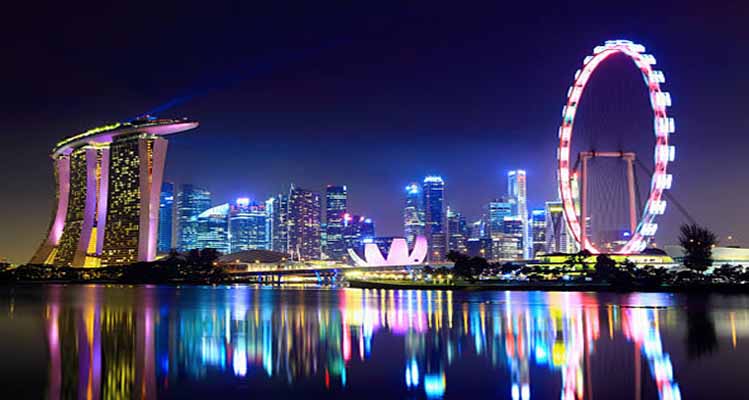
Despite its size, Singapore is punching well above its weight regarding lifestyle and financial services. However, with the rise of big cities like Shenzhen and Shanghai, whether Singapore will continue to hold the title as the leading financial center in the Asia-Pacific region is yet to be determined. After overtaking Hong Kong last year, the Global Financial Centre Index 2022 ranks Singapore third in the world, with only London and New York above the country. Below, we will discuss how Singapore has seen such significant growth in recent years and what the future looks like for the country.
What Made Singapore a Leading Financial Centre?
Several factors have led Singapore to climb the global financial ladder, including its contribution to the forex market, low corporate tax, and being home to some of the wealthiest people in the world. Regarding forex turnover by country, Singapore ranks third in the world, showing that it is one of the leading players in the exchange of national currencies. During the last quarter of the previous year, in addition to financial institutions, approximately 50,000 retail investors engaged in forex trading in Singapore.
Singapore ranks fourth concerning the number of residents considered ultra-rich compared to the rest of the population. This is an impressive feat, considering Singapore has a population of just 5.45 million people, which is significantly lower than some of the other countries that are major players in the world of finance. This shows just how money is circulating in the small country of Singapore and gives you an idea of how it has become the leading financial center in the Asia-Pacific region.
When companies decide where to do business, several factors are considered. One of the most essential things that can sway whether a company does business in a country is the corporate tax rate and the Tax Justice Network. Singapore’s corporate tax rate is highly competitive at just 17%. This has attracted companies worldwide to do business there as their profit margins are much higher than in countries such as the United States, which has a corporate tax rate of 26%. In addition, Singapore ranks third in the world in financial secrecy, which means wealthy individuals can better control their assets and reduce how much tax they pay.
History & Location

Although Singapore isn’t the home of many business headquarters, 2,492 subsidiaries reside in the country, making it a top location in Asia-Pacific for regional headquarters. The government has ideal links, including the connection between the South China Sea in the east and the Strait of Malacca in the west. In addition, Singapore acts as an essential gateway for several resources throughout the region, including rubber, tin, and, most importantly, petroleum.
Back in 1819, a trading post was set up due to being an ideal location for business to be done, and as it grew, the invading British authorities took notice. In 1867, it was made a crown colony in addition to Penang and Malacca. After the creation of the Suez Canal, trade significantly rose, establishing the location as a vital location business. Soon after, several financial services began supporting work, including maritime insurance and currency services. These essentials involved with trade finance started to branch out across the waterfront of Singapore, which is now the location of the financial district in the city.
In 1965, Singapore separated from Malaysia, and the People’s Action Party (PAP) was set up under the government led by Lee Kuan Yew. This marked the growth of the economy in Singapore, which would eventually lead it to become a leading global financial center through many strategic decisions.
Singapore’s Latest Investments.

The government of Singapore has recently made several decisions to establish itself further as a global financial leader. These include investments in creating a solid infrastructure for digital finance and regulation to promote financial innovation. They have also created a plan for the next decade to continue the growth trend in the country in recent years by focusing on developing private capital, fintech, and insurance sectors.
Furthermore, Singapore has placed a lot of focus on investing in education, which has proven to be very successful, with high school children from Singapore ranking at the number two spot in the world in mathematics, science, and reading. Singapore has become a hub for trading, and the country has become very wealthy, allowing it to invest in the tourist sector and improve the quality of life for its residents. The airport in Singapore is also considered one of the best in the world and one of the biggest. Its healthcare system ranks number two globally for efficiency and regularly wins the award for being the safest city.
Singapore is a country that is a strong player in the world of finance, not only in the Asia-Pacific region but around the globe. It is a country that has become extremely attractive for companies from several different sectors to do business, allowing it to grow significantly in recent years thanks to low tax rates and the implementation of financial secrecy laws.
(*)


